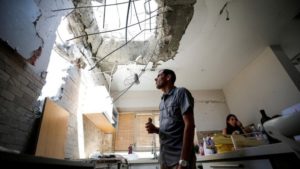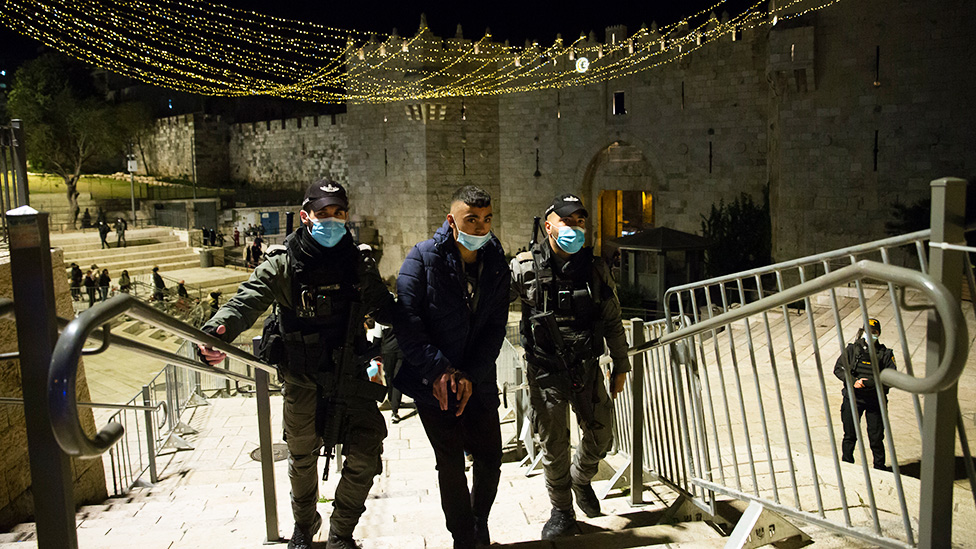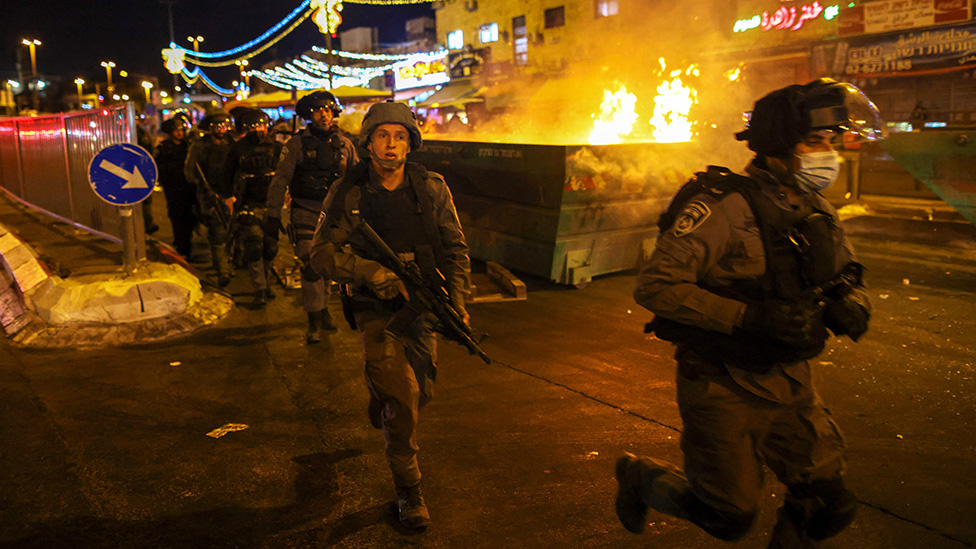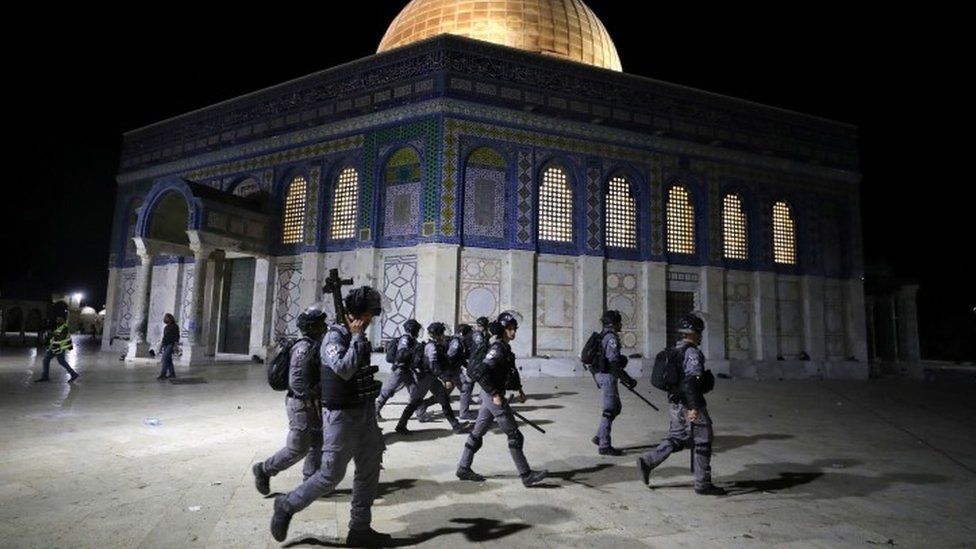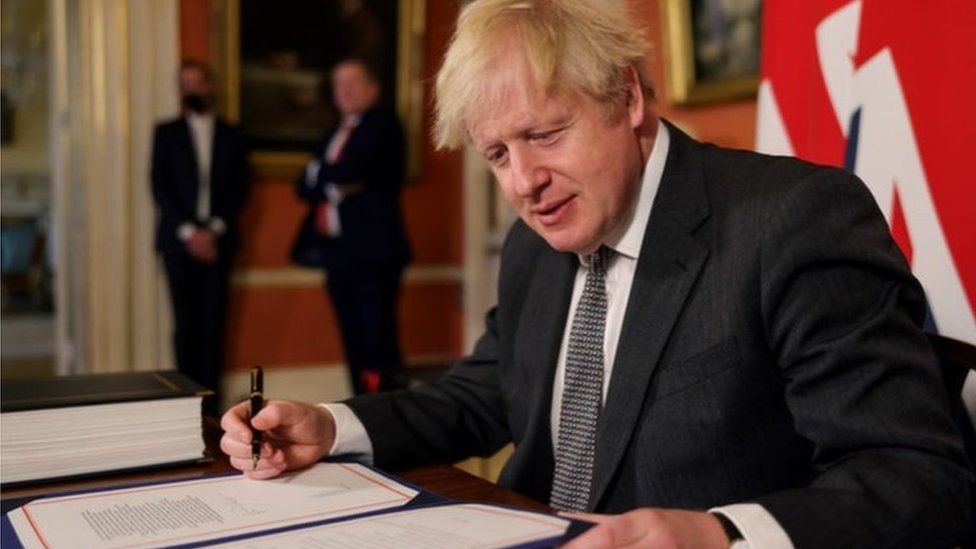Israel-Palestinian ceasefire comes into effect
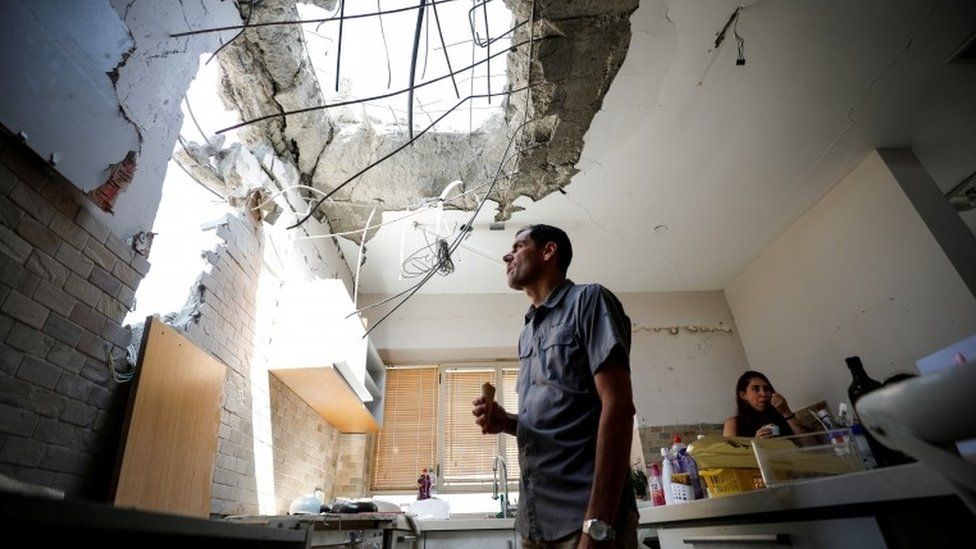
The ceasefire began early on Friday, bringing to an end 11 days of fighting in which more than 250 people were killed, most of them in Gaza.
Both Israel and Hamas claimed victory in the conflict.
The truce faced an early test on Friday when fresh clashes broke out at the al-Aqsa mosque compound in occupied East Jerusalem.
Israeli police spokesman Micky Rosenfeld told AFP news agency that Palestinians had thrown stones at officers, and that “riot” suppressing measures had been taken in response.
The fighting between Israel and Palestinian militants in Gaza began on 10 May after weeks of rising Israeli-Palestinian tension in East Jerusalem that culminated in clashes at al-Aqsa, a holy site revered by both Muslims and Jews. Hamas began firing rockets after warning Israel to withdraw from the site, triggering retaliatory air strikes.
At least 243 people, including more than 100 women and children, were killed in Gaza, according to its health ministry. Israel has said it killed at least 225 militants during the fighting. Hamas has not given casualty figures for fighters.
In Israel 12 people, including two children, were killed, its medical service says.
The Israeli military says more than 4,300 rockets were fired towards its territory by militants and that it struck more than 1,000 militant targets in Gaza.
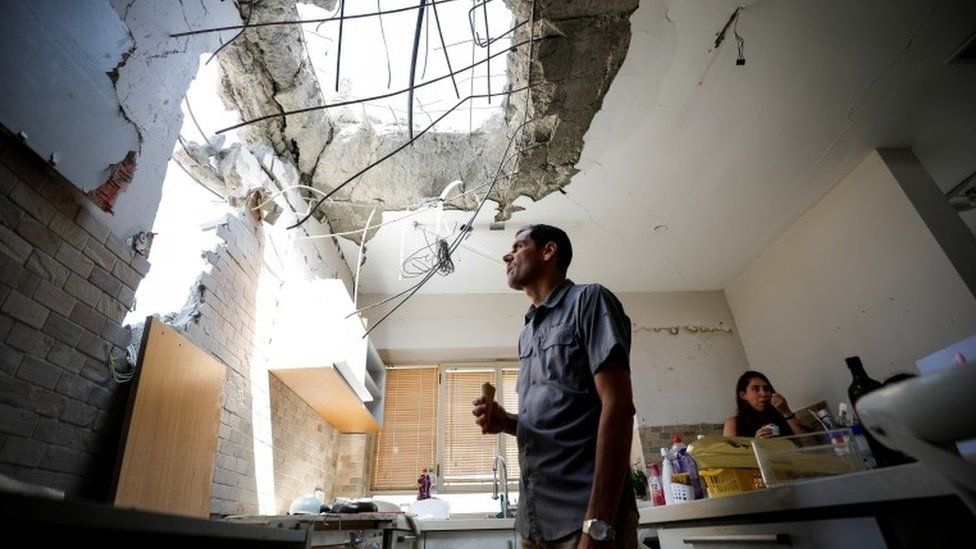 IMAGE COPYRIGHTREUTERS
IMAGE COPYRIGHTREUTERS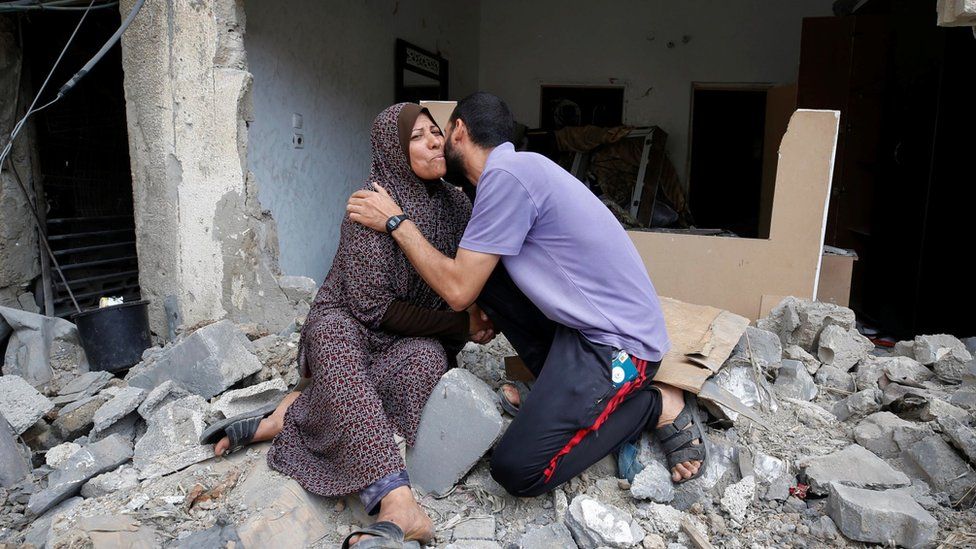 IMAGE COPYRIGHTREUTERS
IMAGE COPYRIGHTREUTERSWhat have the two sides said about the truce?
The Israeli Political Security Cabinet said on Thursday night it had “unanimously accepted the recommendation” for a ceasefire.
“The political leaders emphasised that the reality on the ground will determine the future of the campaign,” it said.
Prime Minister Benjamin Netanyahu faced criticism from some in Israel who said he had halted the conflict too soon. The mayors of Sderot and Ashkelon – two of the Israeli towns hardest hit by rockets from Gaza – were among those to voice their disappointment, saying Hamas should have been eliminated.
At a news conference on Friday, the prime minister said Israel had “exacted a heavy price from Hamas”.
“Not everything is known to the public yet, nor to Hamas, but the full range of achievements will be revealed over time,” he said.
A Hamas official told the Associated Press news agency the ceasefire announced by Israel amounted to a “victory” for the Palestinian people.
This view was shared by people celebrating on the streets of Gaza. “This is the day of victory, the day of freedom, and it is the most beautiful day that we’ve experienced,” one said.
Basem Naim, from the Hamas Council on International Relations, told the BBC he was sceptical about whether the truce would last “without justice for Palestinians, without stopping the Israeli aggression and Israeli atrocities”.
A member of Hamas’s political bureau, Izzat al-Reshiq, issued a warning to Israel.
“It’s true that the battle ends today but Netanyahu and the whole world should know that our finger is on the trigger and we will continue to ramp up the capabilities of this resistance,” he told Reuters.
I’d be surprised if the ceasefire isn’t respected. Both Hamas and Israel had their reasons to stop and declare victory.
Anyone familiar with the previous wars between the two sides will see similarities in what they’re saying the day after. Israel is claiming to have done significant damage and “restored deterrence”.
I write this in the car on the way to southern Israel. I can see Israeli army trucks de-rigging the batteries of the Iron Dome anti-missile system that saved many Israeli lives. That shows confidence that the ceasefire will hold.
Hamas has broadened its claim to tell Palestinians it has won concessions in Jerusalem. It will now try to rearm, and replace the commanders Israel killed.
While they both need a period of quiet, nothing in the fundamentals of the Hamas-Israel nexus has changed. That sows the seeds of the next war. That is not good news for civilians.
The only way to avoid it would be to negotiate a long-term truce in and around Gaza and to make some progress towards a resolution of the wider Israeli-Palestinian conflict.
At the moment that does not look likely.
What position did the US take?
President Joe Biden said the ceasefire had brought a “genuine opportunity” for progress, and commended Mr Netanyahu in a phone call after the agreement was announced.
He said the US – Israel’s closest and most important ally – fully supported the country’s “right to defend itself against indiscriminate rocket attacks”.
He also praised Egypt’s President Abdul Fattah al-Sisi for brokering the ceasefire, before turning to the human cost of the conflict.
“I send my sincere condolences to all the families, Israeli and Palestinian, who have lost loved ones and my hope for a full recovery for the wounded,” he said.
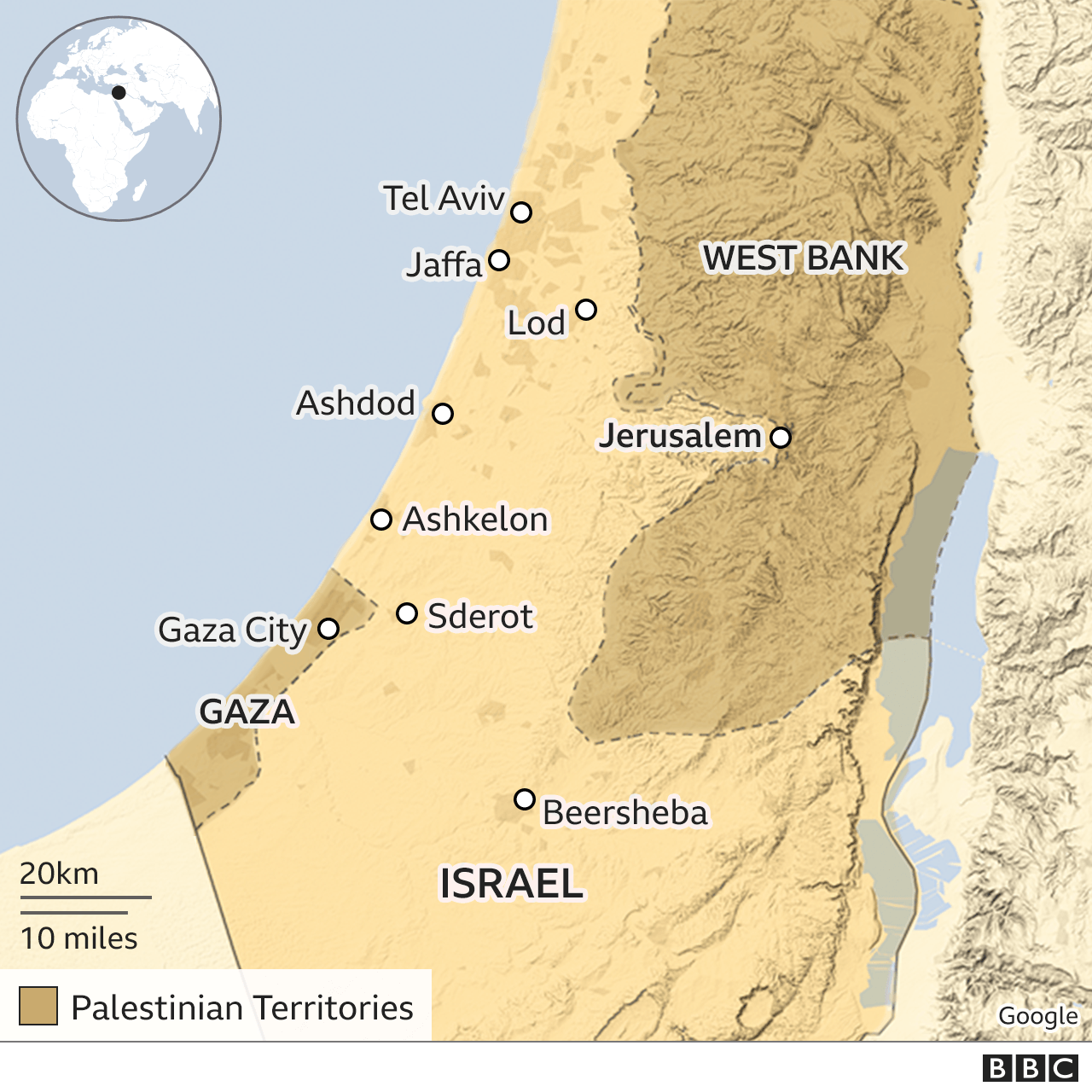

The president said the US remained committed to working with the UN in providing humanitarian assistance to Gaza and in reconstruction efforts in the enclave. He added that this would be done “in full partnership” with the Palestinian Authority, which is run by Hamas’s rival, Mahmoud Abbas, and based in the Israeli-occupied West Bank.
Egypt’s president said he had received a phone call from Mr Biden with “utter happiness”, adding that they had “exchanged visions around reaching a formula that would calm the current conflict between Israel and Gaza”.
British Prime Minister Boris Johnson also welcomed the ceasefire, but said both sides must now find a “durable solution” to the conflict.
BBC.COM

